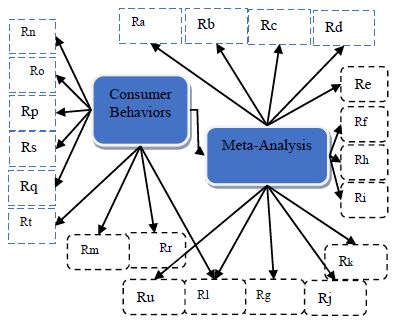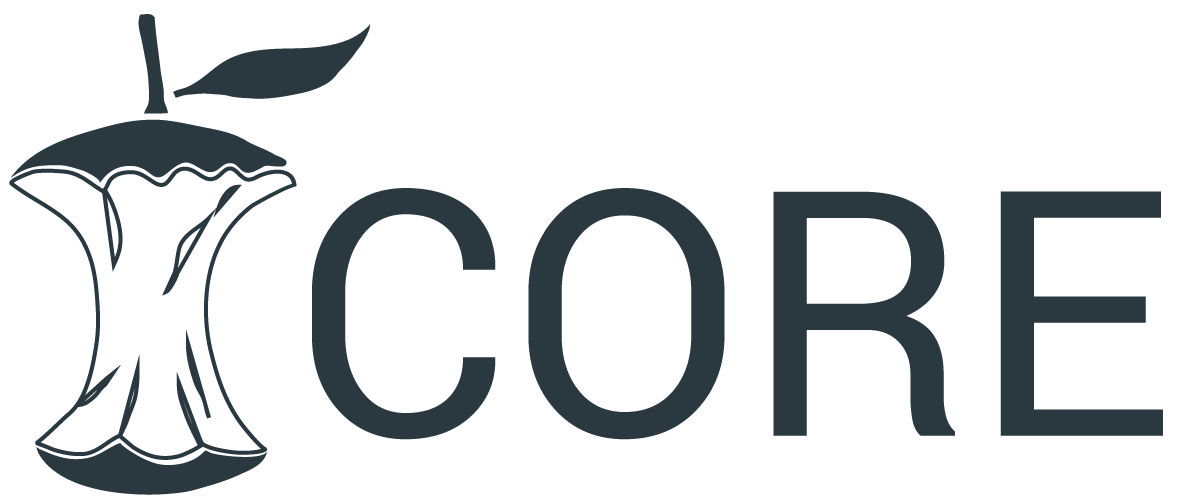An Empirical Study Using Meta-Analysis to Learn How Social Media Affects Organic Consumer Goods Purchase Behaviour
DOI:
https://doi.org/10.5281/zenodo.15779750Keywords:
Organic foods, social media, meta-analysis, consumer behaviorsAbstract
The research indicates a steady increase in the population interested in consuming organic food. This interest has primarily been motivated by health concerns. Despite extensive research on many aspects of organic food consumption, no study has comprehensively examined the factors influencing consumers' perceptions of organic products or their purchasing behaviours regarding organic commodities. This is despite the extensive study conducted on organic food consumption. We utilise a sample of 124,353 customers interviewed for one of the 150 research published between 1991 and 2016 to conduct a meta-analysis examining the variables influencing consumers' preferences for purchasing organic food. The articles were disseminated from 1991 to 2016. From 1991 to 2016, these studies were disseminated in scholarly journals. The findings indicate that the search and experience attributes of organic foods are not regarded as highly as their credibility aspects. This illustrates that consumer beliefs regarding the benefits of organic food versus conventionally produced food are the primary impetus for the industry. The results indicate that search and experience characteristics are not less relevant than credence attributes; instead, they reveal that credence attributes substantially influence customers' decisions regarding organic food purchases. The ability to understand consumer perceptions regarding search, experience, and credibility factors can offer organic producers and sellers a distinctive marketing advantage and a unique selling proposition for their products.
Downloads
References
A. H. Tolba, & S. S. Hassan (2009). A management strategy for tying customer perceptions of brand value to that value's actual market performance. Journal of Product & Brand Management, 18(5), 356–366.
A. Kirmani, & V. A. Zeithaml. (1993). Branding, consumer confidence, and advertising. Brand equity and advertising: Advertising's function in creating powerful brands. Edited by David A. Aaker and Alan L. Biel (pp. 143-162). Lawrence Erlbaum Associates, Hilldale, NJ.
Amanatidis, D., Mylona, I., & Dossis, M. (2022). Social Media and consumer behavior: Exploratory factor analysis. 7th South-East Europe Design Automation, Computer Engineering, Computer Networks and Social Media Conference (SEEDA-CECNSM). https://doi.org/10.1109/seeda-cecnsm57760.2022.9932979.
Andoh-Quainoo, L. (2022). Social media usage in online consumer decision process and buying behaviour. Research Anthology on Social Media Advertising and Building Consumer Relationships, 543–558. https://doi.org/10.4018/978-1-6684-6287-4.ch031.
Barari, M., Ross, M., Thaichon, S., & Surachartkumtonkun, J. (2021). A meta‐analysis of customer engagement behaviour. International Journal of Consumer Studies, 45(4), 457-477.
Consumer Behaviour and Social Media. (2022). Handbook on tourism and social media, pp. 5–5. https://doi.org/10.4337/9781800371415.00006.
Consumer Behaviour: Consumers' attitude toward social media advertising and purchase intentions. (2021). https://doi.org/10.22271/ed.book.1413.
Devereux, E., Grimmer, L., & Grimmer, M. (2019). Consumer engagement on social media: Evidence from small retailers. Journal of Consumer Behaviour, 19(2), 151–159. https://doi.org/10.1002/cb.1800.
Heinonen, K. (2011). Consumer activity in social media: Managerial approaches to consumers' social media behavior. Journal of Consumer Behaviour, 10(6), 356–364. https://doi.org/10.1002/cb.376.
Hong, Y., Wan, M., & Li, Z. (2021). Understanding the health information sharing behavior of social media users: An empirical study on WeChat. Journal of Organizational and End User Computing (JOEUC), 33(5), 180-203.
Jayaganesh Jagannathan, Dr. Agrawal Rajesh K, Dr. Neelam Labhade-Kumar, Ravi Rastogi, Manu Vasudevan Unni, & K. K. Baseer. (2023). Developing interpretable models and techniques for explainable AI in decision-making. The Scientific Temper, 14(04), 1324–1331. https://doi.org/10.58414/SCIENTIFICTEMPER.2023.14.4.39.
K, J. R., R, C., & V, S. (2019). Social media adoption behaviour: Consumer innovativeness and participation intention. Journal of Advanced Research in Dynamical and Control Systems, 11(0009-Special Issue), 1338–1343. https://doi.org/10.5373/jardcs/v11/20192746.
K. Agnihotri, D. Kamidi, R. Ranjan, M. Vasudevan Unni, R. V. Babu K, & N. Jayanthi. (2024). Analyzing customer psychological and behavioral attributes in corporate social responsibility in supply chain management using a multilayer perceptron approach. International Conference on Emerging Research in Computational Science (ICERCS), pp. 1-6, doi:10.1109/ICERCS63125.2024.10894805.
K. M. Nayak, R. K. K, S. D. Khetree, M. V. Unni, A. Vignesh, & S. Ramya. (2024). Fostering synergy: Exploring the intersection of operations and human resources management through an RF-SVM approach. 2nd International Conference on Intelligent Data Communication Technologies and Internet of Things (IDCIoT), pp. 947-953, doi: 10.1109/IDCIoT59759.2024.10467998.
Karim Shaikh, K. A. Devi, P. Deshmukh, M. Rajaram, M. V. Unni, & A. Bhatt. (2024). Digital marketing strategy and consumer behavior analysis through Deep Q-Network (DQN) models. 4th International Conference on Mobile Networks and Wireless Communications (ICMNWC), pp. 1-6, doi: 10.1109/ICMNWC63764.2024.10872145.
Levin, A. M., Gaeth, G. J., Levin, I. P., & Chen, S. (2022). Relating social skills and social media use to consumer behavior: An investigation across the autism spectrum. Journal of Consumer Behaviour. https://doi.org/10.1002/cb.2106.
M. V. Unni. (2020). Does digital and social media marketing play a major role in consumer behaviour?. International Journal of Research in Engineering, Science and Management, 3(4), 272-278.
M. V. Unni, R. S, R. Kar, R. Bh, V. V, & J. M. Johnson. (2023). Effect of VR technological development in the age of AI on business human resource management. Second International Conference on Electronics and Renewable Systems (ICEARS), pp. 999-1004. doi:10.1109/ICEARS56392.2023.10085258.
Maccarrone‐Eaglen, A., & Schofield, P. (2022). The influence of social media addiction on compulsive buying behaviour: A comparative analysis of LGBT + and heterosexual consumers. Journal of Consumer Behaviour. https://doi.org/10.1002/cb.2115.
Mishra, A., & Maity, M. (2021). Influence of parents, peers, and media on adolescents' consumer knowledge, attitudes, and purchase behavior: A meta‐analysis. Journal of Consumer Behaviour, 20(6), 1675–1689. https://doi.org/10.1002/cb.1946.
Mou, J., & Benyoucef, M. (2021). Consumer behavior in social commerce: Results from a meta-analysis. Technological Forecasting and Social Change, 167, 120734.
Naeem, M., & Ozuem, W. (2021). Customers' social interactions and panic buying behavior: Insights from Social Media Practices. Journal of Consumer Behaviour, 20(5), 1191–1203. https://doi.org/10.1002/cb.1925.
Nayak, K. M., Renjith Krishnan, K., Khetree, S. D., Unni, M. V., Vignesh, A., & Ramya, S. (2024). Fostering synergy: Exploring the intersection of operations and human resources management through an RF-SVM approach. 2nd International Conference on Intelligent Data Communication Technologies and Internet of Things, pp. 947 – 953. https://doi.org/10.1109/IDCIoT59759.2024.10467998.
Singh, D. P., Gupta, K., Singh, N., Unni, M. V., Jayasudha, S., & Chauhan, A. (2025). Enhancing enterprise human resource management: Predicting workers’ stress for improved workplace satisfaction using a hybrid deep transfer learning approach. In: CRC Press eBooks, pp. 328–333. https://doi.org/10.1201/9781003559115-55.
Smith, A. (2019). Web and social media activity. Consumer Behaviour and Analytics, 61–80. https://doi.org/10.4324/9780429489921-3.
Social Media Marketing. (2021). How people buy online: The psychology behind consumer behaviour. https://doi.org/10.4135/9789354793066.n11.
T. Ambler. (2003). How marketing affects profits. (2nd ed.). London: Pearson Education, Ltd.
Unni, M. V., & Menon U, S. (2020). Does the Indian education system require a paradigm shift?. International Journal for Science and Advance Research in Technology, 6(4), 695–699.
Unni, M. V., Jeevananda, S., Kalapurackal, J. J., & Fatma, S. (2024). Enhancing authenticity and trust in social media: an automated approach for detecting fake profiles. Indonesian Journal of Electrical Engineering and Computer Science, 35(1), 292 – 300. https://doi.org/10.11591/ijeecs.v35.i1.pp292-300.
Upadhyay, Y., Paul, J., & Baber, R. (2022). Effect of online social media marketing efforts on customer response. Journal of Consumer Behaviour, 21(3), 554–571. https://doi.org/10.1002/cb.2031.
Z. S. Rauf, M. Kathiravan, P. Vanitha, R. M. Kani, R. Sethumadhavan, & M. V. Unni. (2025). The role of HR in sustainable and ethical supply chain management using a residual neural network approach. International Conference on Intelligent Systems and Computational Networks (ICISCN), pp. 1-6, doi:10.1109/ICISCN64258.2025.10934406.
Τσιακάλη, Κ. (n.d.). Tourists' personality and consumer behaviour in social media. https://doi.org/10.12681/eadd/35666.

Published
How to Cite
Issue
Section
License
Copyright (c) 2025 Rudresh S, Manu Vasudevan Unni

This work is licensed under a Creative Commons Attribution 4.0 International License.
Research Articles in 'Management Journal for Advanced Research' are Open Access articles published under the Creative Commons CC BY License Creative Commons Attribution 4.0 International License http://creativecommons.org/licenses/by/4.0/. This license allows you to share – copy and redistribute the material in any medium or format. Adapt – remix, transform, and build upon the material for any purpose, even commercially.









